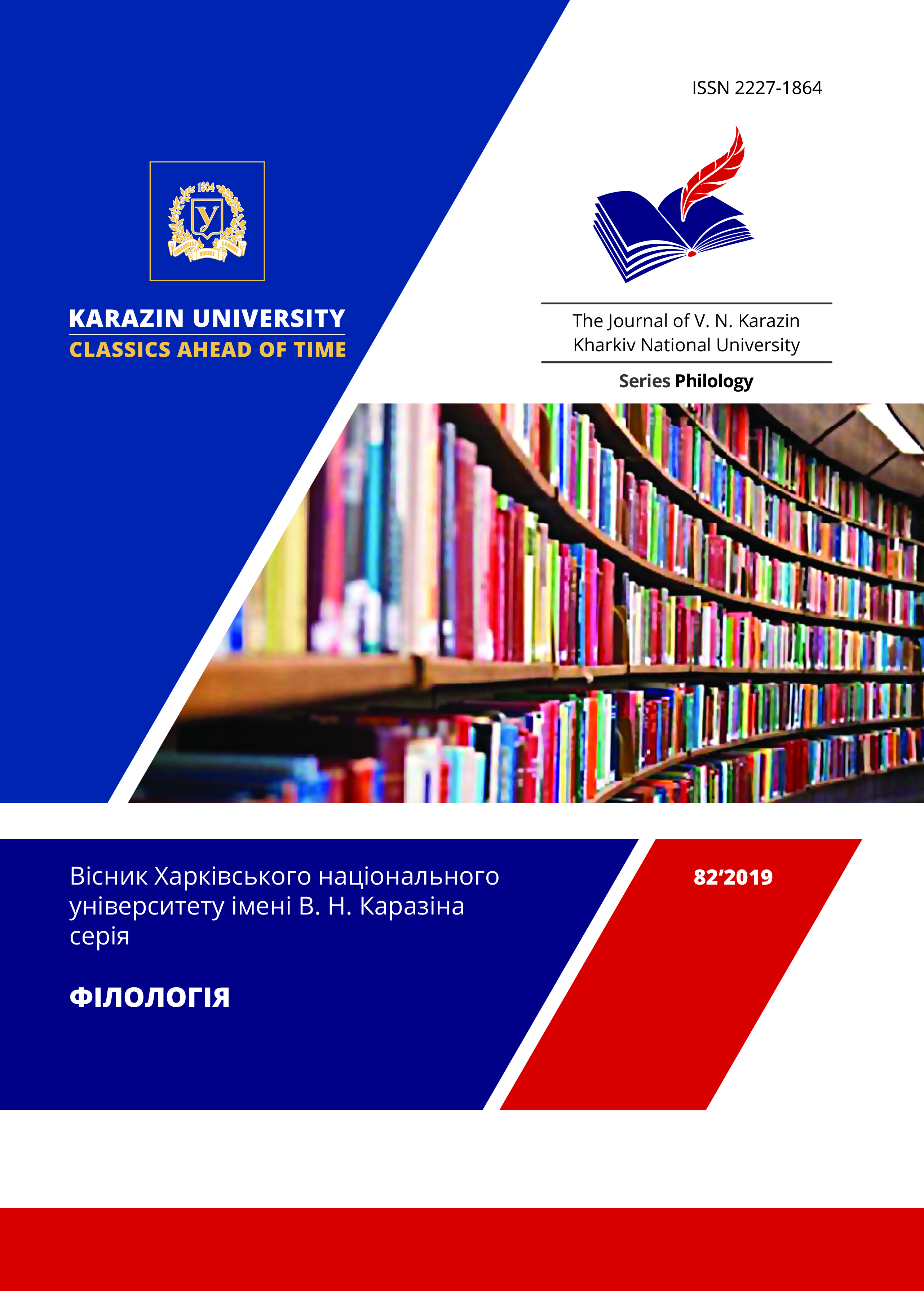On the availability of generic concepts in the context of their non-available naming units (in terms of the Pirahã language)
Abstract
Certain linguists believe that speakers of the mother-tongues which are considered to be primitive without any nomination of generic concept have such concepts. The paper is aimed at testing the theoretical substantiation of the statement concerning the available generic concepts in the consciousness in terms of the non-availability of their nomination in the language and specifying the reason of such a statement. A hypothesis is made on the fact that the acceptance of the availability of generic concepts in the consciousness in terms of their non-available nominations in the language is such a wide logical error as substitution of notions meaning the transference of the modern mentality onto the mentality of a primitive man.
Analyzing the material of active-structure languages which have only one generalized “living – nonliving” opposition (which includes the Pirahã language considered in the paper) and which are impossible to generalize in terms of more specific features than living and nonliving signs (due to the prevailing syncretism), in terms of the correlations of structural characteristics of the Pirahã language with the peculiar non-availability of adjectives and generalized nouns in the language of half-year-old (but not two-year-old) children, in terms of the generalization/non-generalization of colour nomination in the civilized and primitive (including Pirahã) languages, applying the notion of memory, degrees of perception, logics as thinking structure, and abstract nature of thinking (closely connected with the generalization), it is proved that the availability of generic concepts in terms of the non-availability of their definitions (postulated only for the primitive languages) is impossible; and confirmation of that availability is such a substitution of notions today as the transference of the modern civilized mentality onto the primitive mentality.
Downloads
References
Boas F. Vvedenie k «Rukovodstvu po yazykam amerikanskih indejcev» (Izvlecheniya) // Zvegincev V. A. Istoriya yazykoznaniya XIX-XX vekov v ocherkah i izvlecheniyah. 3-e izd., dop. CH. II. Moskva: Prosveshchenie, 1965. S. 170-180.
Gamkrelidze T. V., Ivanov Vyach. Vs. Indoevropejskij yazyk i indoevropejcy. Rekonstrukciya i istoriko-tipologicheskij analiz prayazyka i protokul'tury. Kn. 1. Tbilisi: Izd-vo Tbilisskogo un-ta, 1984. XCVI, 428 s.
Gvozdev A. N. Formirovanie u rebenka grammaticheskogo stroya russkogo yazyka. CHast' vtoraya. Moskva: Izd-vo Akademii pedagogicheskih nauk RSFSR, 1949. 192 s.
Ivanov Vyach. Vs. CHet i nechet: Asimmetriya mozga i znakovyh sistem. Moskva: Sov. radio, 1978. 184 s.: il.
Klimov A. G. Ocherk obshchej teorii ergativnosti. M.: Nauka, 1973. 264 s.
Klimov A. G. Tipologiya yazykov aktivnogo stroya. Moskva: Nauka, 1977. 320 s.
Koshelev A. D. Ocherki evolyucionno-sinteticheskoj teorii yazyka / Sost. A. D. Koshelev. Moskva: Izdatel'skij Dom YSK, 2017. 528 s. (Razumnoe povedenie i yazyk. Language and Reasoning.)
Luriya A. R. Ob istoricheskom razvitii poznavatel'nyh processov: Eksperimental'no-psihologicheskoe issledovanie. Moskva: Nauka, 1974. 172 s.
Mid M. Kul'tura i mir detstva. Izbrannye proizvedeniya. Per. s angl. i komment. Y. A. Alekseeva; Sost. i poslesl. I. S. Kona. Moskva: Glavred. vost. lit-ry izd-va «Nauka», 1988. 429 s., il.
Popov S. L. Kognitivnye osnovaniya evolyucii form russkogo sintaksicheskogo soglasovaniya: Monografiya. Har'kov: NTMT, 2013. 150 s.
Sechenov I. M. Elementy mysli // Sechenov I. M. Izbrannye proizvedeniya. T. 1. Fiziologiya i psihologiya. Moskva: Izd-vo AN SSSR, 1952. S. 272-426.
Chuprikova N. I. Psihologiya umstvennogo razvitiya: Princip differenciacii. Moskva: AO «Stoletie», 1997. 480 s.
Everett D. L. Ne spi – krugom zmei. Byt i yazyk indejcev amazonskih dzhunglej. Moskva: Izdatel'skij Dom YSK, 2016. 384 s.




